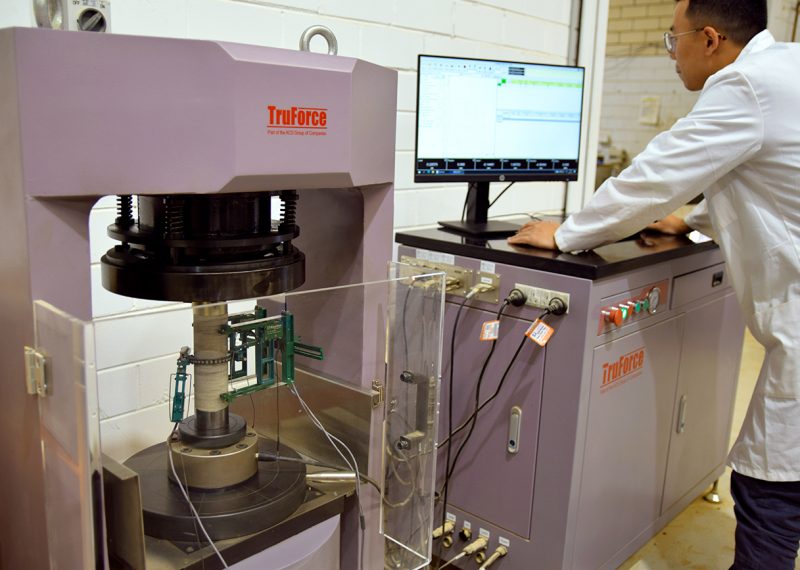Determination of Uniaxial Compressive Strength (UCS) and Indirect Tensile Strength (ITS)
E=Young’s Modulus u=Poisson’s Ratio G=Shear Modulus K=Bulk Modulus
These tests are conducted by our experienced rock mechanic specialists using the latest compressive strength equipment. The use of our high-accuracy extensometers (axial & circumferential) also provides measurement for interpretation of rock deformability (stiffness).
Talk to us about sample storage preservation solutions to considerably minimise drying out that causes irreversible detrimental alteration of the properties of a material for future testing.
Rock UCS and Deformability Testing
Uniaxial Compressive Strength (UCS) is one of the most important mechanical properties of rocks widely used in different engineering related projects to evaluate the stability of structures against loads. The multi-range loading capacity of Alliance’s rock compression machine ensures the high accuracy of load measurement.
Our axial and circumferential extensometers are used to capture the rock deformation during loading and this data helps to determine the key rock deformability characteristics, e.g., Young’s modulus, Poisson’s ratio, shear modulus and bulk modulus. Customers can choose their preferred testing method and data interpretation methods given by ASTM, ISRM, Australian Standards, and RMS, or customised procedures.
Rock ITS Testing
The Indirect Tensile Strength (ITS) test, or so-called Brazil splitting test, is a widely adopted test method that uses a rock compression machine to indirectly measure the rock’s tensile strength. Here at Alliance, the tests can be conducted as per standard methods given by ASTM, ISRM, Australian Standards, and RMS testing methods or we can customize these tests on the request by clients for specific design requirements or research projects.
Being a brittle material, rocks may exhibit very different behaviours under tensile and compressive loading. The tensile strength of rock can be orders of magnitude less than its compressive strength, therefore it is critical to precisely determine the rock’s tensile strength in engineering practices such as tunnelling, underground mining and underground repositories.
We give you the right information to make the right decisions






